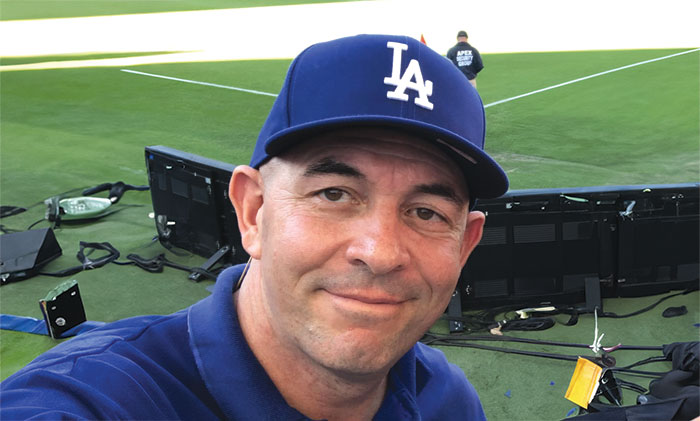Tally sheets in hand and layered up against the weather — though they were instructed not to leave their vehicles — volunteers took to their cars and spread out into the night to seek out the homeless around Encino as part of the 2016 Greater Los Angeles Homeless Count on Jan. 27.
Their ranks included a pair of roommates in the real estate business who were looking to deepen their involvement in the community, a counselor who works with veterans at the West Los Angeles Medical Center, a UCLA economics professor collecting research data and several members of the Homelessness Task Force at Valley Beth Shalom (VBS), which served as the evening’s home base — one of 150 around the area to host volunteers.
“My husband I are super sensitive to homeless people,” said Claudine BenArosh, an advocate for children of incarcerated parents. “When we learned about the count, I said I’d like to try it. I thought it would be a good way for me to really get involved in something bigger than just giving people change [when we’re] coming off of the freeway.”
After training was completed at 9 p.m., 40 volunteers began searching the streets north and south of Ventura Boulevard between the 405 Freeway and Reseda Boulevard. Working in groups of three of four, they spent the next two hours cruising underneath freeway overpasses, and poking into the alleyways and parking lots along the mostly closed businesses along Ventura.
Many volunteers returned to the Conservative synagogue without a sighting, only to be reminded by VBS officials and administrators from the Los Angeles Homeless Services Authority (LAHSA) that “zero is an acceptable number.” Indeed, within certain areas of this affluent San Fernando Valley community, expectations among the volunteers of finding even a single person on the streets — much less small communities of tents — were low. The final tally for the 18 Encino census tracts covered by the volunteers was just over 50 people, according to count coordinators.
“On the one hand, the volunteers were happy not to be seeing people on streets, but they wanted to make sure they did their job well and get accurate data,” said Shannan VerGow, regional coordinator of the San Fernando Valley area of LAHSA. “People were almost disappointed when they didn’t find homeless people. They wanted to make a difference. They know that collecting data translates to money for programs in an area of need.”
Taking a census of the area’s homeless population is required for local homeless programs to receive funding from the U.S. Department of Housing and Urban Development.
Moshe Buchinsky, graduate vice chairman of the department of economics at UCLA, said he took part in the count because he will be part of a team that uses the data to help determine spending allocations and because he considers the effort a mitzvah.
“It’s kind of weird for me to be working on an issue involving the homeless, since I don’t really know what a homeless person is,” Buchinsky said. “I have never been homeless. I don’t know what it’s like.”
Many of the volunteers were VBS members who have participated in past service or advocacy efforts that the temple makes on behalf of the homeless. Rabbi Noah Farkas has implemented several social service programs addressing homelessness, including feeding programs and an advocacy coalition. In working with other service organizations and Los Angeles District 3 County Supervisor Sheila Kuehl, Farkas helped author an affordable housing bill that was passed in late 2015.
“As we developed our working knowledge of issues related to the homeless, we felt like everyone was just telling us to do soup kitchens and help out, and we felt like that wasn’t enough,” said Farkas, who was appointed an LAHSA commissioner by Kuehl. “We’re trying to figure out how we’re going to continue bringing this issue in front of the eyes of our folks, and doing the count is a huge and deeply important part of this work.”






















 More news and opinions than at a Shabbat dinner, right in your inbox.
More news and opinions than at a Shabbat dinner, right in your inbox.